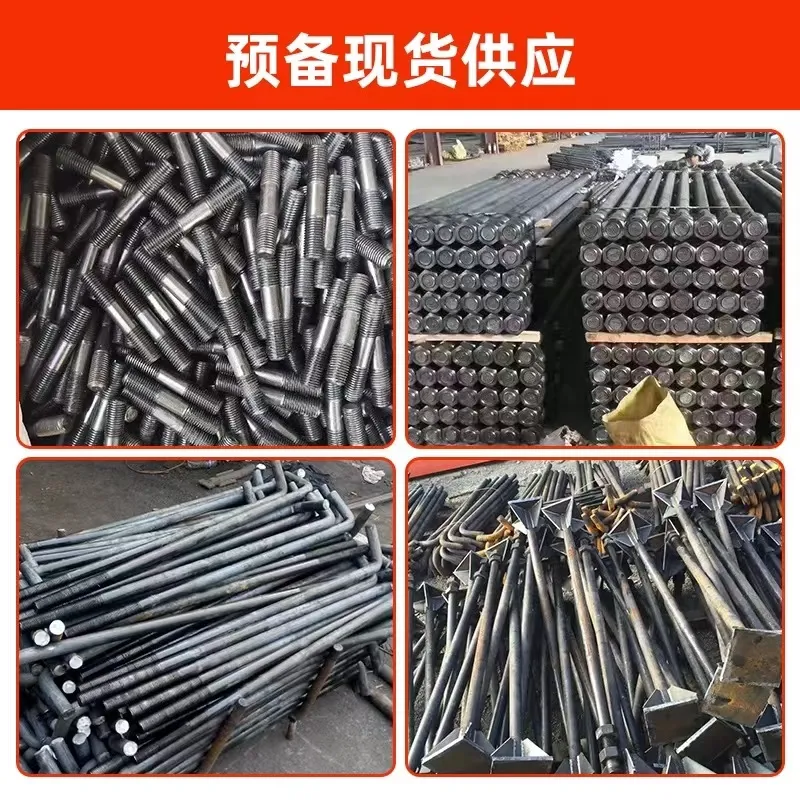

Self-Drilling Screws for Structural Steel Applications and Joining Solutions
Sep . 24, 2024 03:45 Back to list
Self-Drilling Screws for Structural Steel Applications and Joining Solutions
Self-Tapping Screws for Structural Steel An Overview
Self-tapping screws are an essential component in the construction and manufacturing of structural steel frameworks. These specialized fasteners are designed to create their own threads as they are driven into materials, making them particularly useful in applications where traditional fastening methods may be less efficient. This article will delve into the characteristics, advantages, and applications of self-tapping screws in structural steel, highlighting their significance in modern construction.
Understanding Self-Tapping Screws
Self-tapping screws come in various designs, each tailored to suit specific applications. Typically made from high-strength steel, these screws feature sharp, pointed tips that facilitate penetration into tough materials, such as structural steel. The threading of the screws allows them to tap into the metal, creating a secure fit without the need for pre-drilled holes in many cases. This self-threading capability not only saves time during installation but also ensures a tighter, more reliable connection.
Advantages of Self-Tapping Screws
One of the primary advantages of using self-tapping screws in structural steel applications is their ease of installation. Unlike traditional screws, which often require a pilot hole for secure attachment, self-tapping screws simplify the process by allowing for direct insertion into the metal. This reduces labor time and enhances productivity on the job site.
self tapping screws for structural steel

Furthermore, self-tapping screws provide excellent load-bearing capacities and can accommodate a range of structural demands. Their design minimizes the risk of stripping or shearing, which can be a concern with other types of fasteners. Additionally, many self-tapping screws are available with corrosion-resistant coatings, making them suitable for outdoor applications or environments with moisture exposure, thus prolonging their lifespan.
Applications in Structural Steel
Self-tapping screws are used in a wide array of applications within the realm of structural steel. They are commonly employed in the assembly of metal buildings, bridges, and industrial structures, where strong and durable connections are crucial. Additionally, they are beneficial in systems requiring the attachment of steel panels, roofing, and siding.
In the automotive and aerospace industries, self-tapping screws are often utilized to secure various components where weight savings and structural integrity are vital. Their ability to create robust connections without adding significant weight to the structure makes them a favored choice among engineers and designers alike.
Conclusion
In conclusion, self-tapping screws are a vital tool in the construction and manufacturing of structural steel frameworks. Their unique design, coupled with the advantages of ease of use, high strength, and corrosion resistance, make them an ideal choice for various applications. As industries continue to evolve and seek efficient fastening solutions, the importance of self-tapping screws in structural steel will undoubtedly grow, further establishing their place in modern engineering practices. By understanding their capabilities and best applications, builders and manufacturers can enhance their operations and contribute to the overall safety and durability of steel structures.
Latest news
-
High-Strength Hot Dip Galvanized Bolts - Hebei Longze | Corrosion Resistance, Customization
NewsJul.30,2025
-
Hot Dip Galvanized Bolts-Hebei Longze|Corrosion Resistance&High Strength
NewsJul.30,2025
-
High-Strength Hot-Dip Galvanized Bolts-Hebei Longze|Corrosion Resistance&High Strength
NewsJul.30,2025
-
Hot Dip Galvanized Bolts-Hebei Longze|Corrosion Resistance&High Strength
NewsJul.30,2025
-
Hot Dip Galvanized Bolts - Hebei Longze | Corrosion Resistance, High Strength
NewsJul.30,2025
-
High-Strength Hot Dip Galvanized Bolts-Hebei Longze|Corrosion Resistance, Grade 8.8
NewsJul.30,2025

